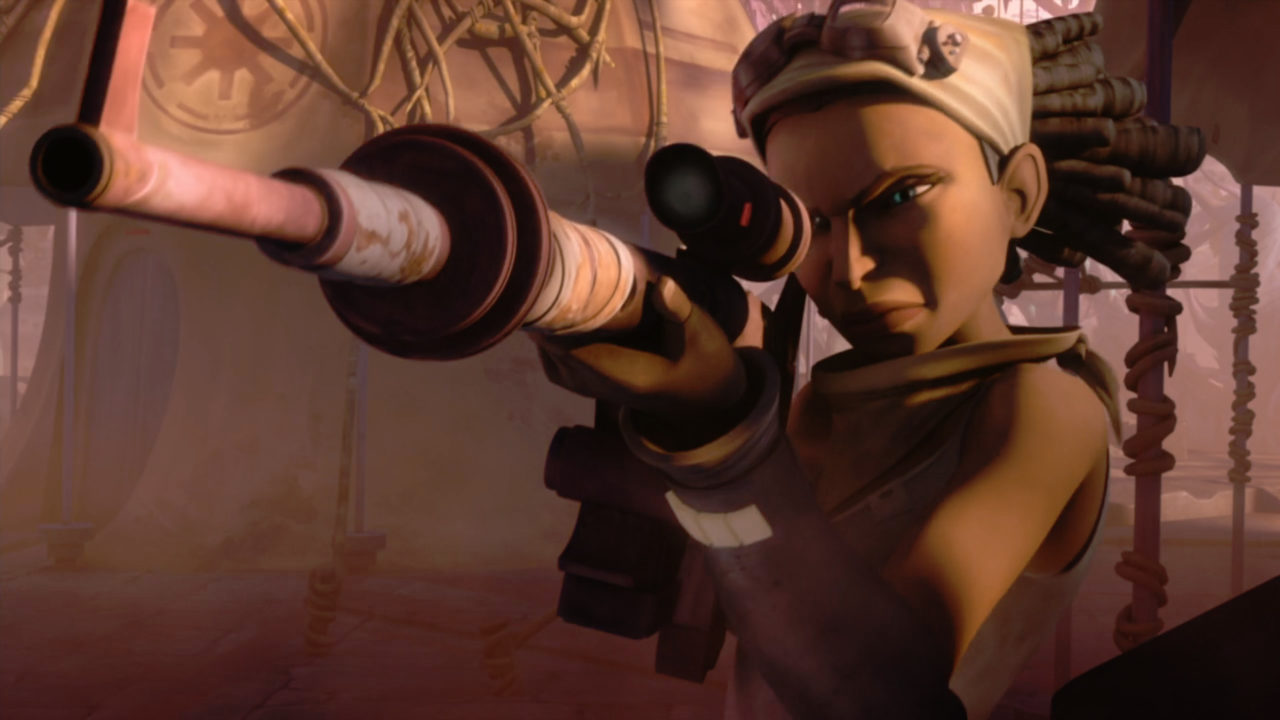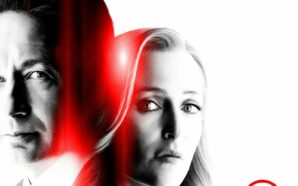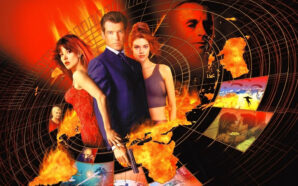Unsurprisingly, war is a core component of Star Wars. Yet, also unsurprisingly for what is essentially a fairy tale, a morality tale for ten-year-olds composed of mythological archetypes, the presentation and examination of warfare is often simplistic. Yes, the Battle of Endor was inspired by the Vietnam War, with the native, underestimated Viet Cong who pushed back their mightier, more-technologically advanced enemies being portrayed by teddy bears. The legions of civilians appearing to save the day at the Battle of Exegol is a play on Operation Dynamo at Dunkirk. But still, these are big bold story beats in an unsubtle narrative, and this isn’t a complaint, I love them.
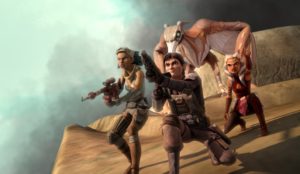 The Clone Wars is different. Depending on the arc, the show can be Star Wars at its silliest but also Star Wars at its most serious. The titular wars are a unique setting compared to the other eras of the franchise. It’s not the simple conflict between noble rebels and evil empire. As the crawl for Revenge of the Sith states, “there are heroes on both sides”, and the series goes so way to exploring the finer points of the conflict only hinted at during the prequels themselves. The ultra-dogmatic Jedi are losing their grip on both the galaxy and their morality, the corrupt government is using a clone army to enforce its rule, and the separatists, the rebellious heroes of any other Star Wars story, are presented as the villains, led by the Sith as a tool in a machination none can see. This is a fantastic playground for exploring the many facets of war and the show truly does so at the beginning of its fifth season.
The Clone Wars is different. Depending on the arc, the show can be Star Wars at its silliest but also Star Wars at its most serious. The titular wars are a unique setting compared to the other eras of the franchise. It’s not the simple conflict between noble rebels and evil empire. As the crawl for Revenge of the Sith states, “there are heroes on both sides”, and the series goes so way to exploring the finer points of the conflict only hinted at during the prequels themselves. The ultra-dogmatic Jedi are losing their grip on both the galaxy and their morality, the corrupt government is using a clone army to enforce its rule, and the separatists, the rebellious heroes of any other Star Wars story, are presented as the villains, led by the Sith as a tool in a machination none can see. This is a fantastic playground for exploring the many facets of war and the show truly does so at the beginning of its fifth season.
The four-episode Onderon arc is The Clone Wars at its most serious but also its most nuanced. It’s still an animated show accessible to children, as I believe Star Wars always should be, but on a recent rewatch I was surprised at the depth on show. The planet of Onderon becomes a separatist stronghold, not through invasion but simply through regime change, the new king becoming an ally of Dooku. Because of this, the Jedi and Republic cannot openly wage war without being the aggressors and so decide to train and supply the local insurgency to fight back. But are these freedom fighters or terrorists? Placing the heroes of this story, whose action figures line shelves, in this situation is a bold move. Yet the show withholds judgment. Not in a frustrating, lack-of-conviction type way but it simply tells the story and has multiple characters comment on it from different angles, leaving the complex ideas to be contemplated on without a clear answer, which doesn’t exist.
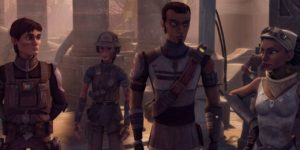 The Onderon storyline deals with a very ugly but real side of warfare, and the show isn’t afraid to parallel actual events. The rebels being trained by the Republic to fight the separatists will come to call their teachers the enemy when the Empire is born. Anakin Skywalker is teaching those he will later mow down as Darth Vader when they become part of the Rebel Alliance. From his point of view, which the franchise continues to develop, the rebels we see here are very much like the Mujahideen, who were backed by the United States during the Soviet invasion of Afghanistan. For a time, we saw the Mujahideen as heroic freedom fighters, applauding them as allies in blockbusters like Rambo III and The Living Daylights. Then they morphed into the Taliban and used their CIA training to strike at the country that armed and supported them. This is the truth of warfare and the type of geopolitical narrative the franchise was unafraid to imitate.
The Onderon storyline deals with a very ugly but real side of warfare, and the show isn’t afraid to parallel actual events. The rebels being trained by the Republic to fight the separatists will come to call their teachers the enemy when the Empire is born. Anakin Skywalker is teaching those he will later mow down as Darth Vader when they become part of the Rebel Alliance. From his point of view, which the franchise continues to develop, the rebels we see here are very much like the Mujahideen, who were backed by the United States during the Soviet invasion of Afghanistan. For a time, we saw the Mujahideen as heroic freedom fighters, applauding them as allies in blockbusters like Rambo III and The Living Daylights. Then they morphed into the Taliban and used their CIA training to strike at the country that armed and supported them. This is the truth of warfare and the type of geopolitical narrative the franchise was unafraid to imitate.
To personify these Onderon rebels, put faces to the ideals, Saw and Steela Gerrera were created. Steela is the more noble of the siblings but dies at the end of the arc, leaving a broken Saw to carry on the campaign that will shift targets from CIS to the Empire. Saw’s journey into moral depravity is enjoyable to track through the animated series, video games, and Rogue One. Perhaps even the upcoming Andor too. This arc makes for a great bookend with Rogue One, seeing how far he has come in his fight and how much it has drifted towards terrorism, with his bombings causing the death of innocents. It is no accident that the man inspired by a Mujahideen leader is ultimately an extremist found in a cave in the desert. Saw offers a key perspective on the arc, very much looking on the situation as a soldier rather than a leader, and butting heads against the more political outlooks like that of Lux Bonteri, mirroring his later relationship with Mon Mothma.
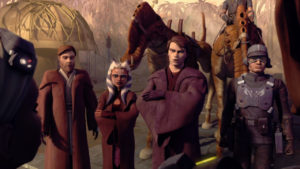 The Onderon arc is a fascinating part of a greater whole, the first step in a decades-long rebel campaign, but it also offers great insight into the Jedi and their mentality at this point of the Clone Wars, a conflict slowly sapping them of their heroic status and strength. The Sith have pushed them to the point where they are training terrorists and managing to justify it. The Jedi even resort to giving weapons to insurgents through a criminal proxy. This isn’t to say they don’t feel conflicted about it, because they do, and the Council debate their actions, but the fine line between inspiring hope and inciting terror is worn away on their watch. They are trying to depose a democratically-elected leader simply because they disagree with him. The Jedi come close to dealing in fear, the weapon of their enemies, and it’s hard not to view this as commentary by Lucas on the US government in the early 2000s. Those parallels may be clear but the story is universal enough to apply to many conflicts. The events in Ukraine are on everybody’s mind and the episodes deal with the difficult question of what we can do to support our allies without being fully dragged into a war.
The Onderon arc is a fascinating part of a greater whole, the first step in a decades-long rebel campaign, but it also offers great insight into the Jedi and their mentality at this point of the Clone Wars, a conflict slowly sapping them of their heroic status and strength. The Sith have pushed them to the point where they are training terrorists and managing to justify it. The Jedi even resort to giving weapons to insurgents through a criminal proxy. This isn’t to say they don’t feel conflicted about it, because they do, and the Council debate their actions, but the fine line between inspiring hope and inciting terror is worn away on their watch. They are trying to depose a democratically-elected leader simply because they disagree with him. The Jedi come close to dealing in fear, the weapon of their enemies, and it’s hard not to view this as commentary by Lucas on the US government in the early 2000s. Those parallels may be clear but the story is universal enough to apply to many conflicts. The events in Ukraine are on everybody’s mind and the episodes deal with the difficult question of what we can do to support our allies without being fully dragged into a war.
Much of the torment of the Jedi is personified by Ahsoka, who is left to watch over the rebels for a time. It’s impossible not to watch this arc without thinking of Ahsoka’s decision to leave the Jedi Order at the end of this season. It’s a choice cemented by the events of that final arc but the decision has been brewing for some time as the Padawan witnesses the flaws of the Jedi and her masters break the rules they have been teaching her. Despite her minimal involvement, or maybe because of it, this is a great arc for her. She also does what Anakin couldn’t and lets go of her attachment to Lux. She backs out of a potential relationship and focuses on her mission and ideals, the Jedi code, not selfish desires in that moment. While seemingly nothing but extra character flavouring, this is a vital piece to the story and its themes. Ahsoka becomes the true Jedi perspective on compassion and attachment in both a macro and micro way, in terms of her personal relationships and the Jedi’s relationship with the war.
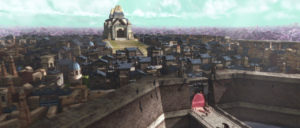 I’m glad that the writers waited until the fifth season to tell this story. Not just because of the willingness to delve into darker and more complex narratives but also because the quality of animation has improved, and that actually helps the story. Finally, we get Jedi wearing cloaks for the first time because the cloth physics have been worked out, and Onderon, and its capital Iziz, are stunning. It’s a melding of different Middle Eastern and North African design and, critically, full of people. The budget and technology now allow for the streets to be packed with character models and that is vital. The citizens are what this arc and war is about and I’m glad the show doesn’t lose sight of that. Anytime action happens in the streets, such as a bombing of a separatist convoy or checkpoint, we get reaction shots, and they are rarely cheering. People run and children cry at our ‘heroes’ actions. They are conflicted and that’s another way the show refuses to justify or condemn the actions taken.
I’m glad that the writers waited until the fifth season to tell this story. Not just because of the willingness to delve into darker and more complex narratives but also because the quality of animation has improved, and that actually helps the story. Finally, we get Jedi wearing cloaks for the first time because the cloth physics have been worked out, and Onderon, and its capital Iziz, are stunning. It’s a melding of different Middle Eastern and North African design and, critically, full of people. The budget and technology now allow for the streets to be packed with character models and that is vital. The citizens are what this arc and war is about and I’m glad the show doesn’t lose sight of that. Anytime action happens in the streets, such as a bombing of a separatist convoy or checkpoint, we get reaction shots, and they are rarely cheering. People run and children cry at our ‘heroes’ actions. They are conflicted and that’s another way the show refuses to justify or condemn the actions taken.
The Clone Wars is a fun sci-fi action series and can, and should, be enjoyed as such. But it is also something more. The introduction of the droid drop ships in the final episode of the arc may be a cool action beat fuelling the ‘pew-pew’ entertainment of the show but it’s also referencing the Soviets introducing their devastating attack helicopters in Afghanistan. King Rash is a Star Wars villain we love to hate but he’s also likely based in part on Gaddafi. At its best, Star Wars strikes that balance of creating thrilling war stories for entertainment while also offering a commentary and moral debate on such conflicts, and the Onderon arc of The Clone Wars is its best exploration of war, particularly through a modern lens, offering subtlety, nuance, and no easy answers.
What are your thoughts on the Onderon arc of The Clone Wars? Let me know in the comments and be sure to geek out with me about TV, movies and video-games on Twitter @kylebrrtt.




